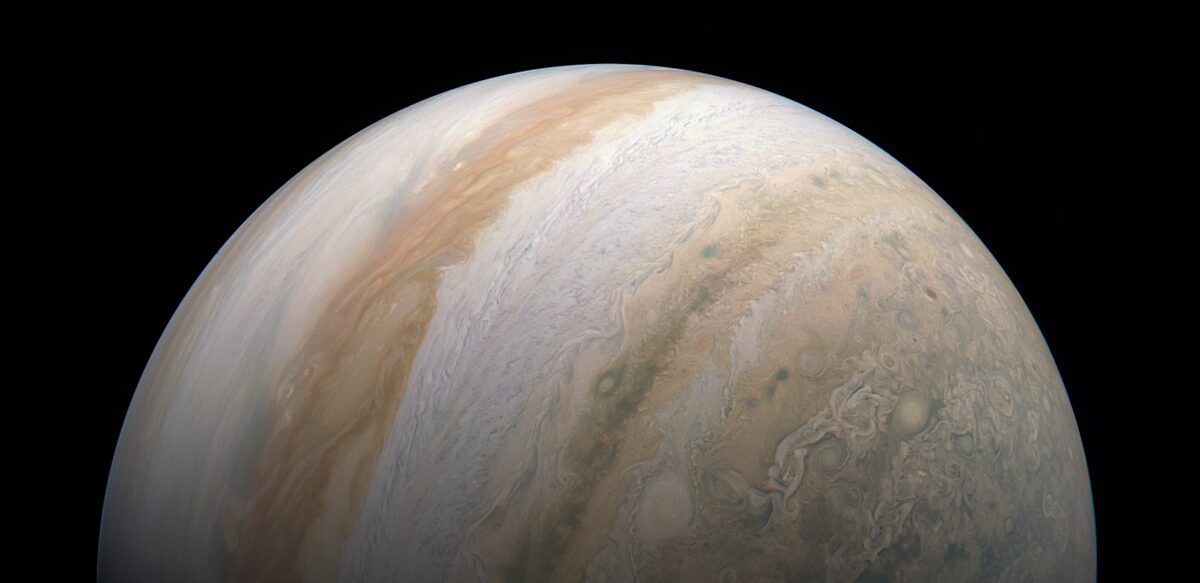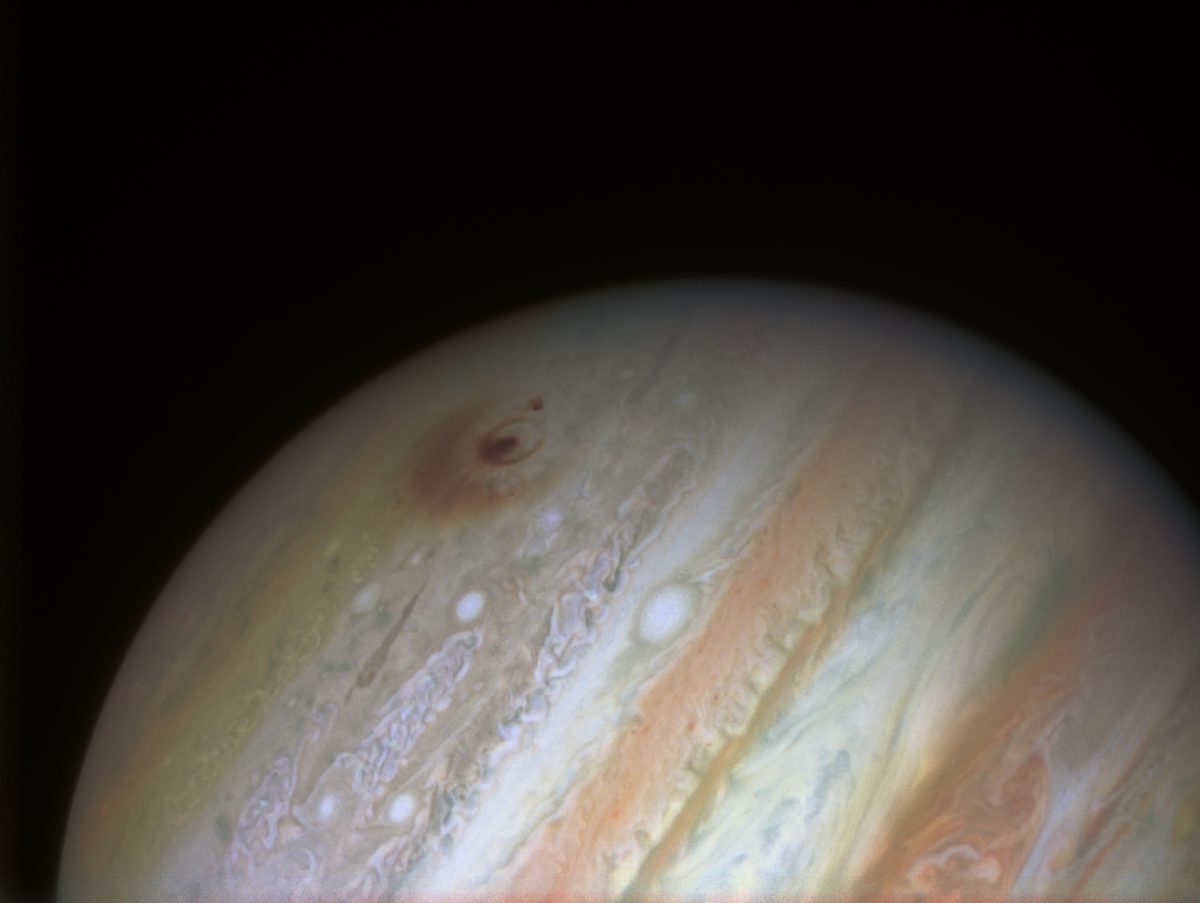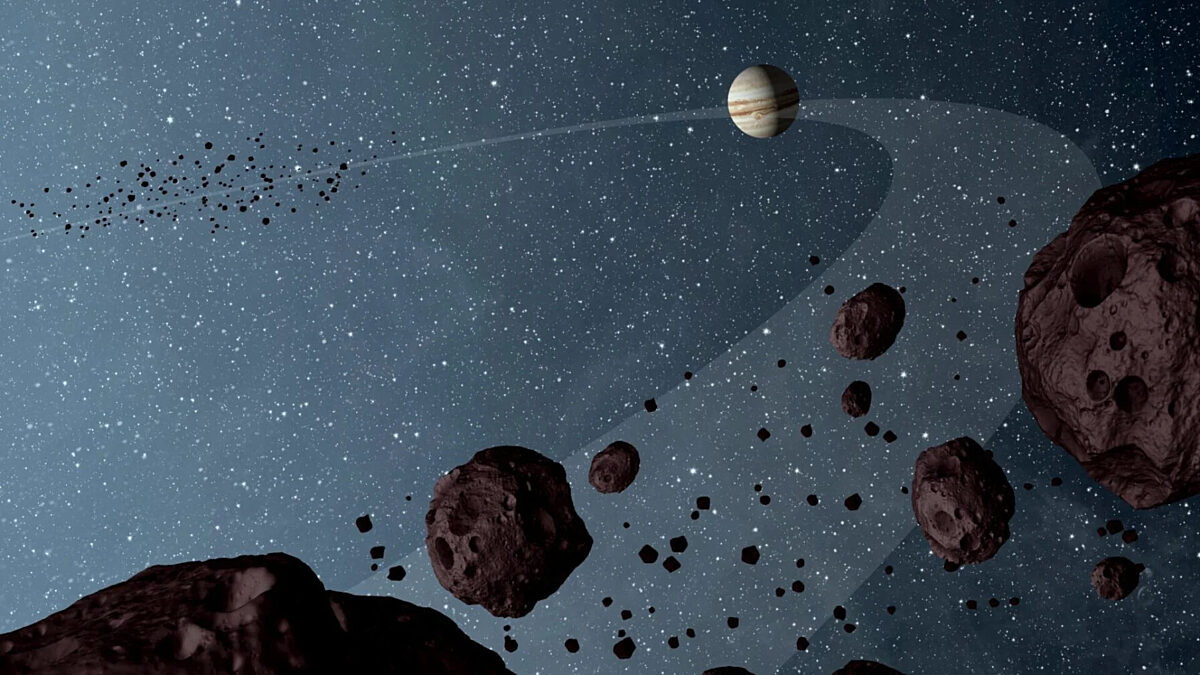Kate Howells • Jul 30, 2024
Does Jupiter protect Earth from asteroids and comets?
Jupiter has long been considered Earth's biggest planetary ally when it comes to keeping us safe from impacts. However, recent research has contradicted this reputation.
The gas giant’s sheer enormity gives it a strong gravitational influence, attracting passing asteroids and comets. Jupiter is known to be bombarded by impacts as smaller objects get sucked into its gravity well, but not every object has this fate. In many cases, Jupiter’s gravity pulls on an asteroid or comet just enough to change its orbital path around the Sun, sending it closer to Earth.
So when it comes to the danger of impacts, is Jupiter our friend or our foe?

Maintaining a tight belt
Jupiter’s influence on small Solar System bodies like asteroids and comets has to do with its size. Its huge gravitational influence pulls on other objects, and may actually be the reason we have as many asteroids as we do.
Early in the history of the Solar System, the gravity of the newly formed gas giant stopped planetary formation in nearby regions by causing smaller bodies to violently collide with one another. Rather than gradually coming together to form a planet, those smaller bodies fragmented into the asteroids we have today.
Nowadays, Jupiter helps maintain the structure of the asteroid belt, a region between Mars and Jupiter that contains the majority of known asteroids. Jupiter’s gravitational influence balances out that of the Sun, stabilizing the orbits of asteroids — most of the time.
Sucking up and spitting out asteroids and comets
Jupiter’s gravitational pull can move an asteroid or comet out of its usual orbit, at times steering it right into the giant planet, and at times sending it out of the Solar System entirely. Jupiter has been called “the vacuum cleaner of the Solar System” because of this tendency.
One way we can see this process in action is through the impacts Jupiter experiences. The Galileo spacecraft and Hubble Space Telescope imaged one such impact in July 1994, when fragments of comet Shoemaker-Levy 9 crashed into Jupiter’s southern hemisphere. The impact left a series of scars on the planet, some larger than Earth.

This wasn’t a standalone event. Comet impacts are thought to happen over 2,000 times more often on Jupiter than on Earth.
The gas giant sucks up lots of smaller objects too. Modeling suggests that objects about 10 meters (33 feet) in diameter impact Jupiter around 12-45 times per year, compared to only once every 6-15 years or so on Earth.
The fact that Jupiter absorbs or deflects so much material in its planetary neighborhood led to the common idea that it is a shield for the inner Solar System, intercepting asteroids and comets that might otherwise come our way. But research has suggested that Jupiter’s influence may actually work both ways—pulling objects into its gravity well sometimes and slingshotting them into the inner Solar System other times.
Sending hazards our way
Simulations have suggested that while the presence of a large planet like Jupiter in our Solar System might decrease the likelihood of a comet from the Oort Cloud colliding with Earth, it can actually increase the likelihood of an impact with an asteroid or short-period comet (those with orbits closer to the Sun). In fact, a recent study suggested that instead of being a shield, Jupiter ‘targets’ the inner Solar System by placing objects that otherwise wouldn’t come near us into new orbits that increase their likelihood of impacting the terrestrial planets.

The difference in how Jupiter affects different groups of small bodies has to do with Jupiter’s role in each kind of object’s movements. Oort Cloud comets tend to stay in the far reaches of the Solar System, but sometimes they can be nudged into orbits that take them closer to the Sun. This can happen because of the close passage of a star or giant interstellar molecular cloud near the Solar System, or because of the gravitational forces, called disk tides, exerted by the mass of the galaxy as a whole. The forces are from very distant sources, but are mighty enough to affect the movement of small icy bodies.
When this does happen, Jupiter is well positioned to be our defender. It might suck a comet right into its own body, or might pull it in just enough to slingshot it out again, even right out of the Solar System.
With asteroids and short-period comets, Jupiter’s influence is likely what causes a small body to leave its current orbit and head off in a strange new direction. Simulations suggest that without a planet like Jupiter in the Solar System, there would be less gravitational disruption of asteroids’ and comets’ orbits, potentially causing fewer impacts with Earth and other inner planets.
Further work is needed to better understand Jupiter’s exact influence on impact rates on Earth. For now, the gas giant’s reputation as protector of the inner Solar System is not clear-cut.
Our best defense? Ourselves.
Jupiter may or may not be our ally in planetary defense, but ultimately, it’s our responsibility to defend ourselves. That’s why The Planetary Society is committed to advancing efforts to find, track, characterize, and deflect potentially dangerous asteroids and comets.
Defending the Earth from Impacts
Asteroids and comets that come close to Earth can pose a very real threat to our planet, but impacts from these objects aren’t inevitable. With proper planning we can prevent this natural disaster from happening.
Support our core enterprises
Your support powers our mission to explore worlds, find life, and defend Earth. You make all the difference when you make a gift. Give today!
Donate

 Explore Worlds
Explore Worlds Find Life
Find Life Defend Earth
Defend Earth


